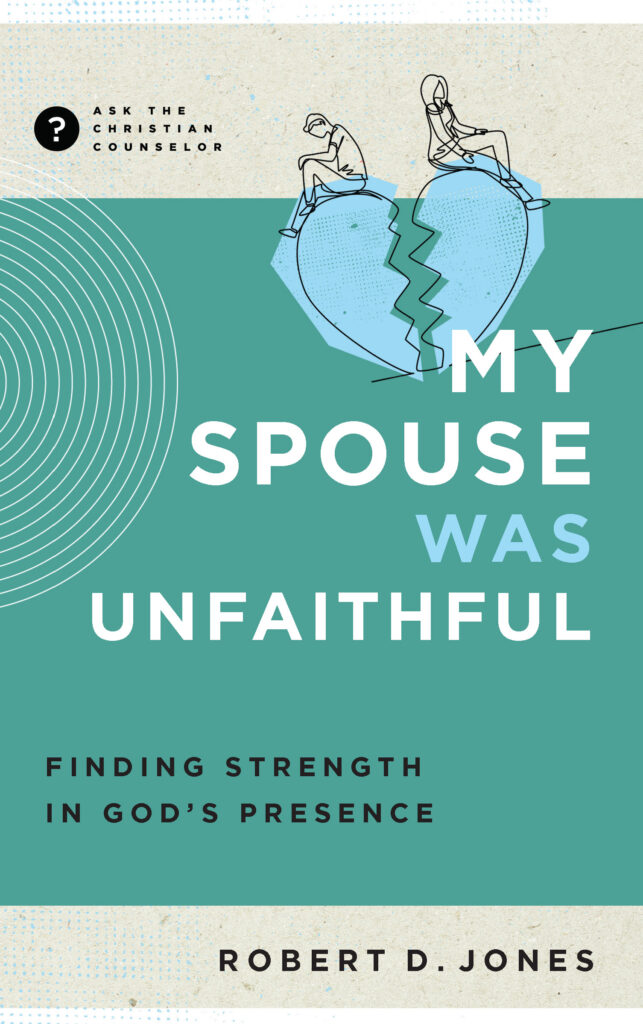How do we deal with the devastating disappointments that infidelity brings? One response is vengeful anger, mirroring the country song about a woman who dug her keys into the sides of the man’s car and carved up its leather seats.
Sadly, that song reflects not merely understandable anger but calculated revenge. For other sinned-against spouses, the response remains more inward. Some are crushed, immobilized, feeling hopeless and helpless. Others try to press on, carry out their other duties, and pursue normalcy, but fears, doubts, and questions nag them.
Before exploring how to respond to your spouse’s infidelity, let’s process your experience through a biblical lens.
WHAT HAPPENED TO YOU
Let me encourage you to think biblically about what happened to you. Whether your spouse’s adultery was a onetime incident or an extended affair, at least three things are true.
First, you were sinned against. Period.
We can supply numerous synonyms: You were betrayed, cheated on, cuckolded. Your spouse hooked up with someone else. While these might be descriptively helpful, biblically viewing what happened to you begins with calling your spouse’s behavior what it is—sin.
Second, your spouse’s sin was not your fault. Your spouse’s sins were your spouse’s sins. You are not responsible for someone else’s choices. The apostle James declares clearly, “Each person is tempted when they are dragged away by their own evil desire and enticed. Then, after desire has conceived, it gives birth to sin; and sin, when it is full-grown, gives birth to death” (James 1:14–15). Though you are a sinner, your sins and human limitations never justify your spouse’s adultery. Nothing you did or failed to do justifies that.
Third, your spouse’s sin of adultery was not like the typical sins that married couples must deal with. Your spouse violated your marital one-flesh relationship and the covenant vows made before God, the wedding witnesses, and you. Sin, of course, marks every marriage. James reminds us that “we all stumble in many ways” (James 3:2). And the apostle John says, “If we claim to be without sin, we deceive ourselves and the truth is not in us” (1 John 1:8). But this kind of sin is different. Adultery strikes at the heart of marriage. While all sin is grievous, this particular sin is more serious than other marital sins. Consider these four reasons:
- Scripture defines the heart of marriage in Genesis 2:24: “That is why a man leaves his father and mother and is united to his wife, and they become one flesh.” In marriage, we forsake all others, unite with our spouse, and form a one-flesh union for life. In marriage, God joins together what should not be broken. Any breach is serious. Moses wrote these words not only in reference to the original marriage of Adam and Eve, but also for his Israelite audience as they prepared to enter the new land. Jesus cites this same verse in Matthew 19:5 to reinforce the permanence and inseparability of marriage. The apostle Paul also quoted it in 1 Corinthians 6:16 to prohibit sexual infidelity and in Ephesians 5:31 to show the mysterious parallel between the one-flesh union of marriage and the intimate spiritual union between Christ and his church. Adultery attacks the very foundation on which God built marriage.
- The description of marriage in Genesis 2 pictures something greater than a mere human contract or agreement (like taking a job or choosing a college), but a covenant, a sacred mutual commitment involving vows made in God’s sight. Proverbs 2:16–19 and Malachi 2:13–16 explicitly call marriage a covenant. Adultery violates a covenant God himself instituted.
- Adultery is more serious than other marital sins in that it provides one of the two exceptions Jesus and his apostles gave when forbidding divorce (Matthew 5:32; 19:9). Adultery can end a marriage.
- Along with idolatry, adultery and its synonyms appear throughout Scripture as a common metaphor for Israel’s rejection of the Lord. For example, in Ezekiel 6:9, God describes “how I have been grieved by their adulterous hearts, which have turned away from me, and by their eyes, which have lusted after their idols.” James 4:4 uses this same metaphor to warn of the dangers of spiritual adultery. In one sense, God likens marital adultery with rejecting him.
Taken together, these four points underscore the gravity of this sin over other marital sins. I remind you of this because I have sometimes heard adulterous spouses try to equate their adultery with the lesser sins of the other spouse, as if to somehow excuse or minimize their adultery. While no marriage partner is sinless, infidelity rises to a different level of severity.
A tragic psalm
Psalm 55 presents a vivid image of the experience of betrayal. In it, we hear the heartbeat of a person devastated by intimate betrayal. Can you locate your own experience in this psalm? David begins in verses 1–3 by crying out to God in the face of enemy opposition to “listen to my prayer.” Verses 4–11 provide further and fuller descriptions of his suffering at the hands of wicked enemies. But in verses 12–14 we learn something even more tragic about the identity of those seeking to destroy him. The leader is David’s close friend:
If an enemy were insulting me,
Psalm 55:12-14
I could endure it;
if a foe were rising against me,
I could hide.
But it is you, a man like myself,
my companion, my close friend,
with whom I once enjoyed sweet fellowship
at the house of God,
as we walked about
among the worshipers.
So, what happened to you? From God’s perspective, here’s the bottom line: You were sinned against in an extremely hurtful way by your God-given covenantal partner. Yet God listens to you, understands your suffering, and invites you to “cast your cares” on him because “he will sustain you” and “will never let the righteous be shaken” (Psalm 55:22).
Excerpt adapted from My Spouse Was Unfaithful: Finding Strength in God’s Presence © 2023 by Robert D. Jones. Used with permission of New Growth Press. May not be reproduced without prior written permission.
my spouse was unfaithful
How should you respond to the devastating disappointments that adultery and other forms of betrayal have brought into your marriage? It’s natural to feel a wide range of emotions, including anger, confusion, grief, sadness, jealousy, anxiety, embarrassment, and regret. Counselor Robert D. Jones has walked with many couples in your situation and provides ten steps for moving forward from this betrayal with God-given hope.






